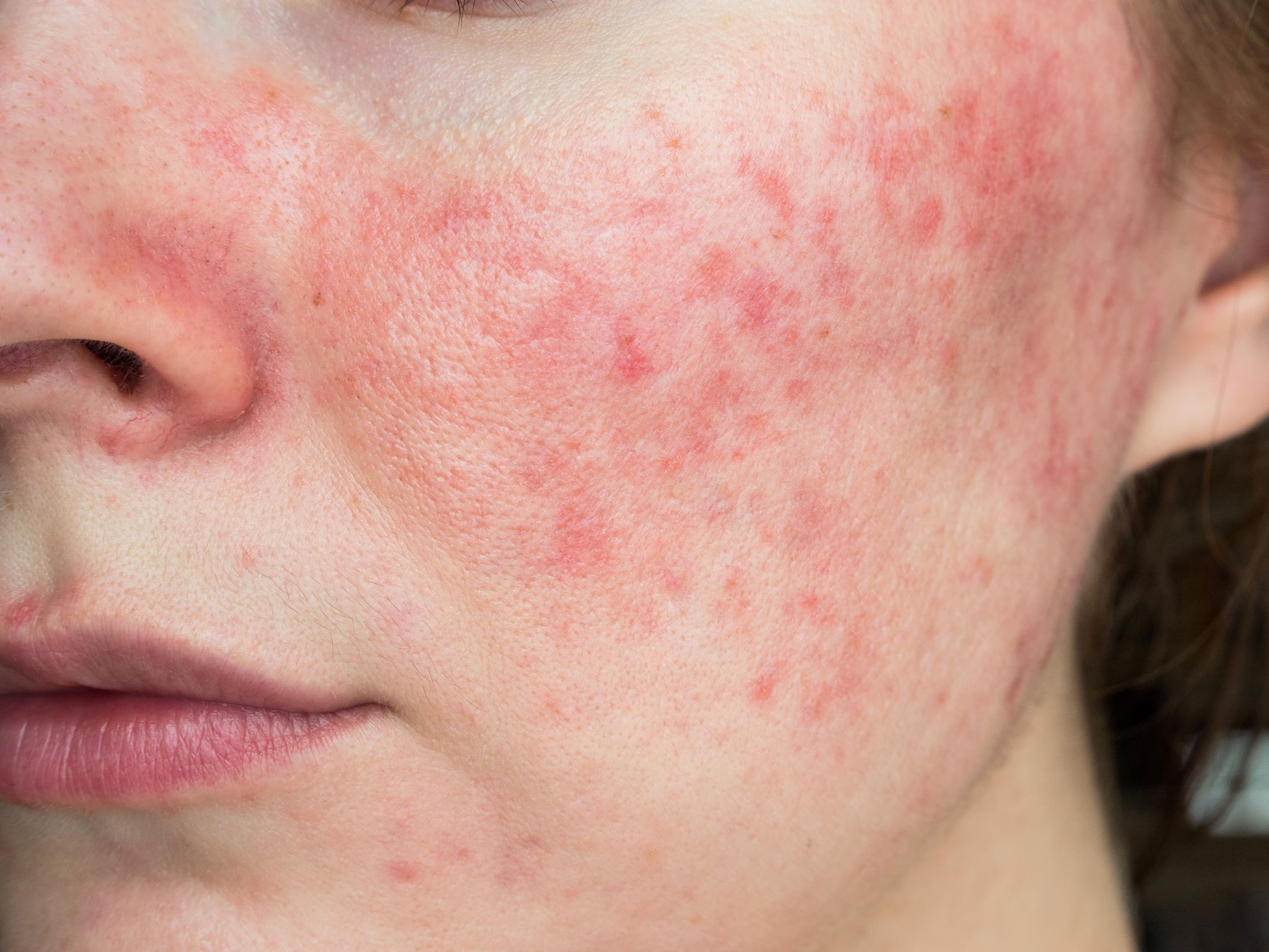-Posting last reviewed by Dr. Smith, April 2023
Rosacea Awareness Month is here!
April has been dedicated by the National Rosacea Society as Rosacea Awareness Month. As the weather is starting to warm up and the sun is starting to shine, it's important to remember to protect your skin. One common side effect of sun exposure that is not often discussed, is it directly causes flares for people with rosacea.
 Rosacea is a chronic skin condition that is genetic, usually amongst Caucasians that can present in many ways. Some people only have mild redness on the face, others are bright red. Some people develop adult acne from rosacea, others have enlarged oil glands throughout the face and nose, creating a large bulbous nose. Many people have rosacea affecting the eyes as well, causing a dry and gritty sensation. Regardless of what type of rosacea you have, it's important to be aware of what makes it worse.
Rosacea is a chronic skin condition that is genetic, usually amongst Caucasians that can present in many ways. Some people only have mild redness on the face, others are bright red. Some people develop adult acne from rosacea, others have enlarged oil glands throughout the face and nose, creating a large bulbous nose. Many people have rosacea affecting the eyes as well, causing a dry and gritty sensation. Regardless of what type of rosacea you have, it's important to be aware of what makes it worse.
Sunlight, red wines, spicy foods, hot showers, and hot beverages are all common triggers for causing flares of rosacea. Do your best to limit whatever triggers make you flush or break out the most.
There are many treatments available, both prescription and over the counter that can help treat rosacea, so don't give up. Start with over the counter broad spectrum sunscreen, at least SPF 30 routinely, especially if you will be outside for an extended period of time. If you are flared and in need of help, feel free to call us at Prairie Lakes Dermatology 605-882-7777.
Wishing you a safe and enjoyable Spring!
